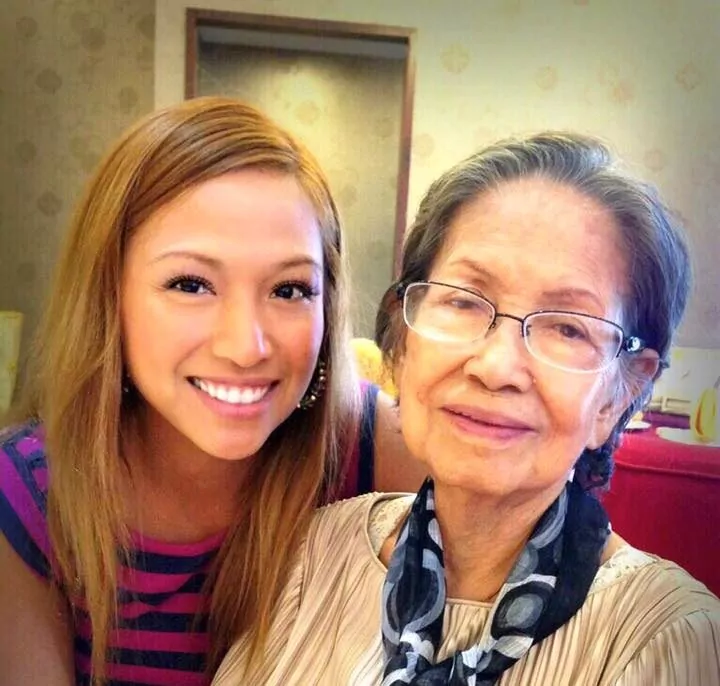 As a family caregiver, you are responsible for taking care of your elderly loved ones. This includes providing assistance with activities of daily living like eating, bathing, toileting, dressing and other minor house chores. Most of the time, family caregivers are also involved in helping seniors with administrative duties including legal and financial matters. Estate planning is part of this. It’s important for family caregivers to know what type of legal documents are required for long-term care planning. Here are some information that will help you and your family plan for your elderly loved ones’ long term care.
As a family caregiver, you are responsible for taking care of your elderly loved ones. This includes providing assistance with activities of daily living like eating, bathing, toileting, dressing and other minor house chores. Most of the time, family caregivers are also involved in helping seniors with administrative duties including legal and financial matters. Estate planning is part of this. It’s important for family caregivers to know what type of legal documents are required for long-term care planning. Here are some information that will help you and your family plan for your elderly loved ones’ long term care.
In This Legal Planning Article
Giving Caregivers Acces To Legal Documents
Last Will
Advance Health Care Directive
HIPPA Authorization
Durable Power of Attorney For Health Care
Durable Power of Attorney For Finances
Giving Caregivers Acces To Legal Documents
Having access to important legal documents will help make senior caregiving easier for family caregivers especially for those caring for elderly relatives with Dementia and Alzheimer’s disease.
What are the most common legal documents that every family caregiver should have?
A Will
A will is one of the most important legal documents family caregivers should have. This legal document should layout out everything about what the senior wants to do with his or her property, including how and when the assets will be distributed among the heirs.
If you’re elderly loved one does not have a will, encourage her to create one. You have to remember that if your senior loved one dies without a will, the state gets to decide on how the senior’s assets will be distributed.
Advance Health Care Directive is commonly known as a living will. Advance Health Care Directives are oral and written instructions about future medical care and how to manage end-of-life care. When faced with a medical crisis, a living will can help ease tension among family members, as it should state what kind of care or treatment your elderly loved one wishes to receive when he or she becomes terminally ill or incapacitated. This important document should state whether the person wants to be hospitalized or stay home, wants to be on life support and/or wants to be resuscitated.
The Health Insurance Portability and Accountability Act of 1996, known as HIPAA for short is privacy rule that protects patient’s health information. It is important for family caregivers to understand HIPAA as it will help make caregiving decisions easier.
Under HIPPA, seniors can authorize family caregivers to participate in doctor visits and have access to their medical records. It is important to have this in writing. In case your elderly loved one hasn’t signed this yet, privacy release forms are usually available in the doctor’s office.
Durable Power of Attorney
Family caregivers should have access to 2 kinds of Durable Power of Attorney in order to make caregiving easier. The two types are:
1. Durable Power of Attorney for Health Care
A Durable Power of Attorney for Health Care is an important document that gives a family caregiver the right to make health care decisions. This legal document takes in effect when a loved one becomes mentally incapacitated to make health care decisions for himself or herself. Although you don’t need a lawyer to draft the durable power of attorney for health care, it is advisable that you contact one.
2. Durable Power of Attorney for Finances
A Durable Power of Attorney for Finances allows s family caregiver to manage their loved ones finances, including access to bank accounts, properties and other assets. This takes into effect when a loved one becomes incapacitated and no longer able pay the bills, file tax returns, manage investments and make other important financial decisions.
Be sure to notarize this document, otherwise it will not go into effect. A lawyer is not required, but just like the Durable Power of Attorney for health care, it is recommended that you consult an attorney.
Copyright © 2019 SeniorCareHomes.com. All Rights Reserved.
Updated: 11/21/19
 About the Author: Catharine D. Allado is a Senior Care Expert and the COO of SeniorCareHomes.com – A trusted and comprehensive online directory of Senior Care Homes such as Assisted Living, Nursing Homes and other types of Senior Housing in California, Florida, New York, Arizona and the rest of the United States. SeniorCareHomes.com also provides FREE Assisted Living options to help seniors and families find the best Senior Housing on the planet!
About the Author: Catharine D. Allado is a Senior Care Expert and the COO of SeniorCareHomes.com – A trusted and comprehensive online directory of Senior Care Homes such as Assisted Living, Nursing Homes and other types of Senior Housing in California, Florida, New York, Arizona and the rest of the United States. SeniorCareHomes.com also provides FREE Assisted Living options to help seniors and families find the best Senior Housing on the planet!
Articles Related To Legal Planning:
- Estate Planning
- Difference Between Advance Directive and Living Will
- Legal Planning Tips For Your Aging Loved Ones
- Terms Commonly Used By Lawyers
- Legal Planning For Dementia Patients
Other SeniorCareHomes.com Helpful Links:
- Seniors Online Community & Legal Planning Discussion Forum
- Senior Care Facility Search
- Senior Facility Registration
Catharine “Kate” is a Certified Administrator for Residential Care Facilities for the Elderly (RCFE) and an Expert Senior Care Advisor. Kate’s grandmother battled Alzheimer’s Disease and Kate personally understands what millions of families are going through. Kate and her team are very passionate in empowering Seniors and their families by providing them with the Best Available Senior Care Options based on Senior’s care needs, preferred location and family’s budget.


